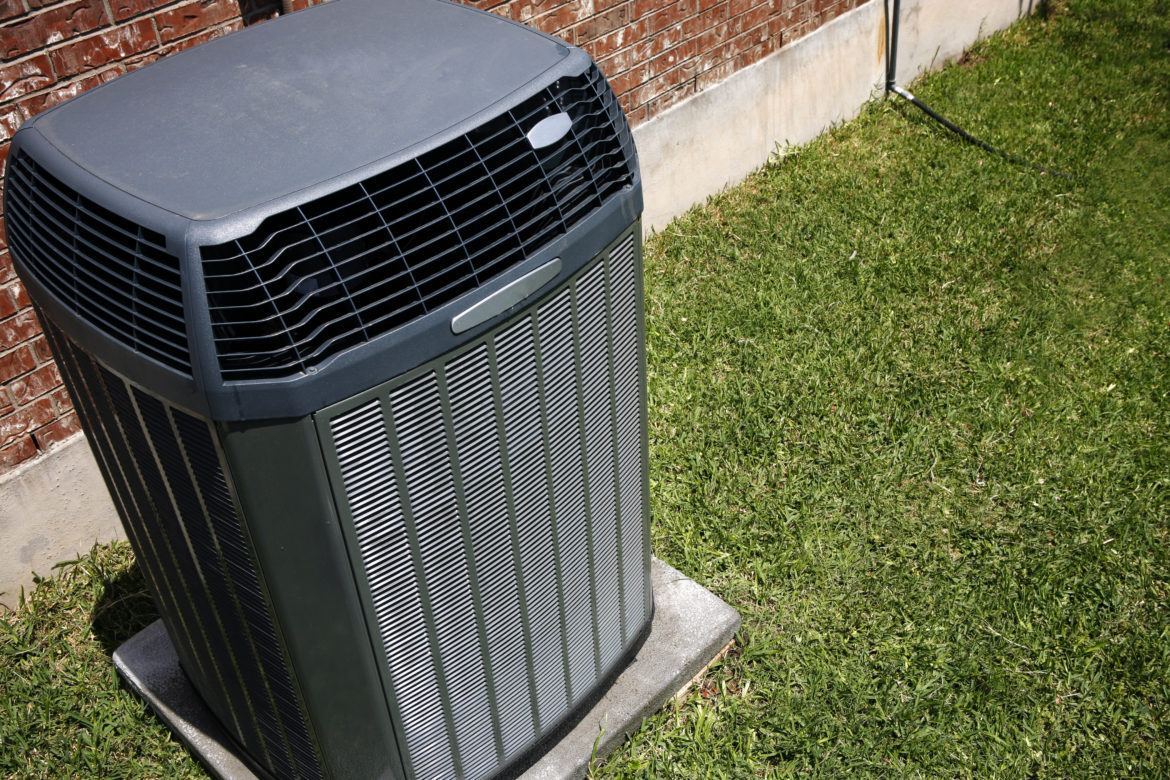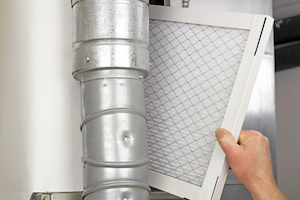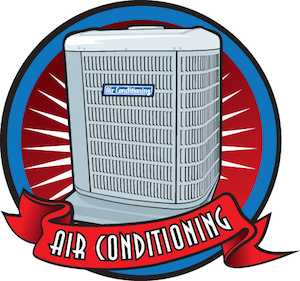 I don’t know about you, but I personally have a mental block when it comes to my furnace air filter. I put reminders on the calendar. There are apps for your smart phone. But I still find myself saying “When was the last time I changed the air filter?” Being in the business, I know the importance of replacing my air filter regularly. As I answer daily service calls from customers with no heat or cooling, the first question I ask is “When was the last time you replaced your air filter?” and quite often the answer is “I don’t remember”. Air filters are part of the regular maintenance that keeps your heating and cooling equipment running efficiently. This got me thinking maybe I can help by putting it all in writing, so I created The City Wide Ultimate Guide to Residential Air Filters. Here you can learn how air filters work and why they are needed, and what we recommend so you can decide was it best for your personal indoor air quality.
I don’t know about you, but I personally have a mental block when it comes to my furnace air filter. I put reminders on the calendar. There are apps for your smart phone. But I still find myself saying “When was the last time I changed the air filter?” Being in the business, I know the importance of replacing my air filter regularly. As I answer daily service calls from customers with no heat or cooling, the first question I ask is “When was the last time you replaced your air filter?” and quite often the answer is “I don’t remember”. Air filters are part of the regular maintenance that keeps your heating and cooling equipment running efficiently. This got me thinking maybe I can help by putting it all in writing, so I created The City Wide Ultimate Guide to Residential Air Filters. Here you can learn how air filters work and why they are needed, and what we recommend so you can decide was it best for your personal indoor air quality.
Why Do I Have an Air Filter & How Does It Work?
Air filters are installed on the air intake side of your furnace. Their main purpose is to filter the air going into your furnace to keep particles from damaging your equipment. Dust, hair, pollen, etc. are captured in the air filter when the blower is running. Capturing all this “gunk” is great for your living environment, but if that filter is not changed regularly that “gunk” will clog the filter and restrict air flow to the furnace/AC causing them to shut down. So the long and short of it is your air filter:
- Extends the life of your HVAC unit
- Keeps energy costs down
- Maintains healthy air quality
- Avoids extra repairs, service, and parts expenses
What Type of Air Filter Do You Have?
One-inch Filters – One-inch filters are the most basic filters you can buy and come in two types. They are the cheapest of the options but the least efficient.
- One-inch Fiberglass – these are the filters we all remember from years ago. They are flat and look like colored plastic spider webs in a cardboard frame. These filters are great to keep your cat from getting into your furnace but won’t stop most small particles. These should be changed every 30-60 days.
- One-inch Pleated – these are the upgraded cousin of the oldies but goodies. They are a pleated material that is supported by chicken wire to keep its shape, surrounded by a paper frame. These filters will stop most standard particles in your home. These should be changed every 30-60 days.
Four, Five and Six-inch Filters – These filters can vary widely by manufacturer. Some are the same as the one-inch pleated filters just bigger. Some have special electrostatic coatings to attract more particles. All of these filters will last longer because they have more surface area to collect “gunk”. Make sure, if you choose this option for your home, you ask questions and do your research to make sure you are getting the best option for your home and the most bang for your buck. These filters should be changed every 6-9 months.
Electronic Air Cleaners – These are an older technology that is being phased out. With these you wash a filter cell every month with mild soap and water, let it dry completely then replace it in the unit. Some systems have carbon filters that need to be replaced every 3-6 months.
Related Read: 5 Things To Check Before Calling a Heating & Cooling Company
What Are MERV Ratings? Why Should I Check It?
A MERV (minimum efficiency reporting value) rating is a number ranging from 1 to 16 that shows the filtration value of air filters. The higher the number, the better the filtration. MERV ratings are used to rate air filters on their ability to remove dust, pollen, mold spores, bacteria, etc. from the air.
Most one-inch air filters only have a MERV rating of between 1 and 4. While inexpensive to buy, they do NOT do a good job of filtering the air. They will not stop particles smaller than 10 microns. (A human hair is about 70 microns in diameter.) Filters with MERV ratings of between 5 and 8 will catch particles as small as 3 microns. Filters with a MERV rating of 9 to 12 will stop particles in the 1-3 micron range, and these filters are a great choice for homeowners who want the best particle control possible. The most efficient filters have MERV ratings of 13 to 16 and will stop particles as small as .3 microns.
City Wide’s Air Filter Recommendations.
There are several different kinds of air filtration to choose from, each having its own characteristics. Here is a quick breakdown of what we recommend to our customers:
- GOOD – one-inch pleated air filter – MERV 8 – can be purchased at any hardware store, should be changed every 1-3 months.
- BETTER – four-inch pleated air filter – MERV 8 – can be purchased at our office or online through some suppliers, should be changed every 6 months
- BEST – Carrier Air Purifier – MERV 13-15 – reduces allergies, captures & kills 96% to 99% of the airborne germs & viruses in your home.
If you have questions about the care or maintenance of your filters, or want options for your home air filtration, give City Wide Heating and Cooling a call at (913) 384-6006 or (913) 236-5555. Be sure to check out our website for special deals and promotions!
 Your air conditioner is getting ready to start working full time to keep you cool this summer. But what have you done for your air conditioner lately? We depend on our AC to keep us cool on the hottest of days, but there are some things you can do to help it get ready.
Your air conditioner is getting ready to start working full time to keep you cool this summer. But what have you done for your air conditioner lately? We depend on our AC to keep us cool on the hottest of days, but there are some things you can do to help it get ready.


 I don’t know about you, but I personally have a mental block when it comes to my furnace air filter. I put reminders on the calendar. There are apps for your smart phone. But I still find myself saying “When was the last time I changed the air filter?” Being in the business, I know the importance of replacing my air filter regularly. As I answer daily service calls from customers with no heat or cooling, the first question I ask is “When was the last time you replaced your air filter?” and quite often the answer is “I don’t remember”. Air filters are part of the regular maintenance that keeps your heating and cooling equipment running efficiently. This got me thinking maybe I can help by putting it all in writing, so I created The City Wide Ultimate Guide to Residential Air Filters. Here you can learn how air filters work and why they are needed, and what we recommend so you can decide was it best for your personal indoor air quality.
I don’t know about you, but I personally have a mental block when it comes to my furnace air filter. I put reminders on the calendar. There are apps for your smart phone. But I still find myself saying “When was the last time I changed the air filter?” Being in the business, I know the importance of replacing my air filter regularly. As I answer daily service calls from customers with no heat or cooling, the first question I ask is “When was the last time you replaced your air filter?” and quite often the answer is “I don’t remember”. Air filters are part of the regular maintenance that keeps your heating and cooling equipment running efficiently. This got me thinking maybe I can help by putting it all in writing, so I created The City Wide Ultimate Guide to Residential Air Filters. Here you can learn how air filters work and why they are needed, and what we recommend so you can decide was it best for your personal indoor air quality. You may know
You may know  Just like your car needs a tune-up occasionally, your furnace and air conditioner benefit from regular tune-ups as well. There are many benefits to an annual tune-up, but did you know there are even more benefits to signing up with
Just like your car needs a tune-up occasionally, your furnace and air conditioner benefit from regular tune-ups as well. There are many benefits to an annual tune-up, but did you know there are even more benefits to signing up with 
 Your air conditioner sits idle all winter long. Not only is it dirty, it’s been neglected for months after a long, hard cooling season. AC tune-ups are a good idea for every homeowner. The
Your air conditioner sits idle all winter long. Not only is it dirty, it’s been neglected for months after a long, hard cooling season. AC tune-ups are a good idea for every homeowner. The  At
At